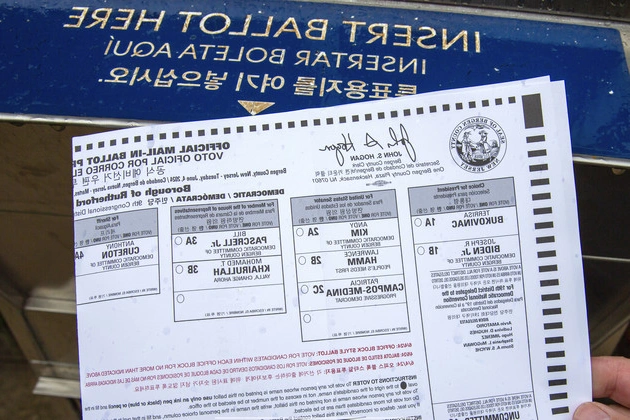
The End of an Era
For the first time in decades, the ballot design that helped political bosses cement their power over New Jersey politics won’t be used by either party in next month’s crowded primary election for governor.
But the progressives who shocked the state’s political world by ending the so-called county line a year ago now say they’re worried some aspects of it could return — and that only a federal court ruling will kill it off forever. Without that, the left-leaning Democrats say, New Jersey’s entrenched powers will do everything they can to chip away at truly open primaries.
A Legal Battle Unfolds
A long-running legal battle over the line’s constitutionality continues to play out in federal court, with lawyers for the progressive plaintiffs — who include Democratic Sen. Andy Kim and the New Jersey Working Families Party — calling for a final decision on the matter. But two county clerks and one local party organization — all Democrats — remain opposed.
“The county line system is part of our political past,” Kim said in a statement. “I want to make sure it’s understood to be unconstitutional so it will never come back.”
Impact on Elections
For decades, county party-endorsed primary candidates in most New Jersey counties were placed in the same row or column of the ballot, from president to local council member and even the neighborhood Democratic committee member. Rival candidates running without a slate of allies often found themselves pushed into obscure parts of the ballot known as “ballot Siberia.” Those ballot placements often virtually determined election outcomes, giving the party leaders enormous sway with their endorsements.
That came to an end in the 2024 Democratic Senate primary following Kim’s lawsuit, which largely mirrored but quickened a slow-moving 2020 suit by several unsuccessful Democratic candidates. U.S. District Court Judge Zahid Quraishi in March 2024 issued a preliminary injunction barring the line, but only for the Democrats.
Future Concerns
In response to the decision, Democratic Gov. Phil Murphy in March signed a new ballot design law that mandates primary candidates from both parties be grouped by office sought instead of establishment party support and barred county clerks from separating candidates from others running for the same office. But opponents of the line are concerned that future legislation could chip away at the law’s anti-line provisions and that local officials will find loopholes in the law that could be avoided with clear court precedent.
“The legislation went a very far way in making sure we don’t vet the worst features of the county line,” said Antoinette Miles, executive director of the New Jersey Working Families Party. “But if we want to make sure we never go back to the same tricks and ballot manipulation we saw with the county line, we need a final court decision.”
Looking Ahead
The absence of the line has played a big role in creating one of the most competitive Democratic gubernatorial primaries in years. Rep. Mikie Sherrill’s support from some of the most powerful Democratic organizations in the state, including Essex and Middlesex counties, would normally make her the overwhelming favorite.
Instead, Sherrill is the narrow front-runner, with her five rivals — Jersey City Mayor Steven Fulop, Newark Mayor Ras Baraka, Rep. Josh Gottheimer, former state Senate President Steve Sweeney and New Jersey Education Association President Sean Spiller — all having at least somewhat realistic paths to the nomination. The Republican primary for governor is less crowded and, based on limited public polling, less competitive.
Continued Disputes
Even the full return of the county line, while unlikely due to the state law, is not completely out of the question. Republican county parties sat on the sidelines during the battle over the line, but there’s been chatter among county GOP chairs about backing an effort to bring back the county line, despite the new state law outlawing it.
“After the election at our next meeting I’m sure we’ll all discuss the outcome of the election and the benefits of the ballot in its current format … and we’ll go from there,” said Morris County Republican Chair Laura Ali.











